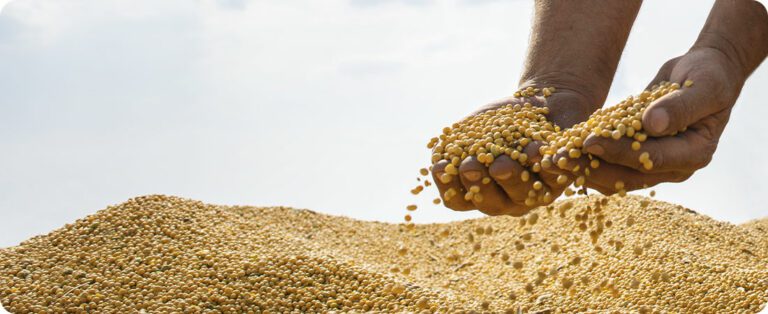The tests with the biomethane tractor carried out in January on a 40-hectare rural property in the municipality of Santa Helena, 100 kilometers from Foz do Iguaçu, demonstrated that the new technology is viable and can help Brazilian agribusiness to become more competitive and self-sufficient in fuel and energy generation.
The evaluation was carried out this Wednesday (8) at the Itaipu Binacional stand at the Rural Coopavel Show, in Cascavel (PR), by the new vice-president of New Holland for Latin America, Rafael Miotto, and the Brazilian general director of Itaipu, Jorge Samek.
Also participating in the ceremony were the superintendent of Renewable Energy at Itaipu, Herlon Goelzer de Almeida, the director-president of the International Center for Renewable Energy (CIBiogás – Biogás), Rodrigo Regis de Almeida Galvão, the commercial director of New Holland Brasil, Alexandre Blasi, and the CEO of Iapar, Florindo Dalberto.
The prototype, which is one of the main attractions at the Itaipu stand at the Rural Show, was developed in Europe by New Holland based on the T6.140 model. Before coming to Brazil, the vehicle was tested on a farm in northern Italy.
For Rafael Miotto, the biomethane tractor provides answers to two major concerns in the field, which are reducing costs and polluting less. According to company data, fuel economy compared to a conventional model is 40%, with 80% less pollutant emissions. Autonomy, depending on the conditions of use, can reach five hours of work or more.
“When you think about the agriculture of the future, which is agriculture that will have certificates, very soon this will also happen to small farmers. You will have to certify how you produce, the origin of the product, how you achieved a certain result”, said the executive.
“The biomethane tractor will help a lot because it pollutes less, consumes less, and economically the farmer has a direct benefit because he will spend less. In other words, it will have a higher margin, greater profitability, and will be more sustainable”, he added.
Jorge Samek reaffirmed that transforming agricultural waste into biogas is an innovative solution to a serious and current problem – gas emissions that cause the greenhouse effect and pollution of soil, rivers and lakes.
“What we are seeing is a revolution in the field. Instead of polluting, you transform this waste into electrical energy or vehicle fuel, and even use the residual part of the process as fertilizer. In other words, clean energy and lower production costs.”
Partnership
The arrival of the tractor to the Western region of Paraná is the result of a cooperation agreement signed by Itaipu and New Holland, in August last year, during Expointer 2016 – the International Animal Exhibition of Esteio (RS), to improve and disseminate the technologies related to the use of biomethane as vehicle fuel.
New Holland's Product Marketing Manager, Nilson Righi, explained that the objective of the tests in Brazil is to evaluate the vehicle's behavior considering the climate and the characteristics of rural properties in the country. The observations could serve as a reference for the development of new generations of biomethane tractors, until the product is ready to be commercially launched on the world market.
The property chosen to test the tractor in Brazil was not by chance. Granja Haacke, in Santa Helena, has a structure with a biodigester, compressors and filter to deal with waste generated by confined cattle and laying hens. This is where the biomethane that supplies part of the fleet of vehicles on the Brazilian side of the Itaipu plant comes from.
Currently, of the company's 249 vehicles, 59 are powered by biomethane – and this number will rise to 73 by the end of the semester. Itaipu and CIBiogás are also completing the construction of a biomethane production plant within the plant, which will use grass, sewage and food waste. The gas will reinforce the fleet’s supply.
Photos: Rubens Fraulini/Itaipu Binacional












